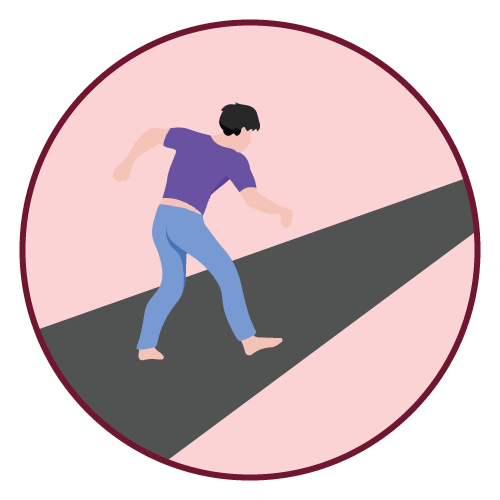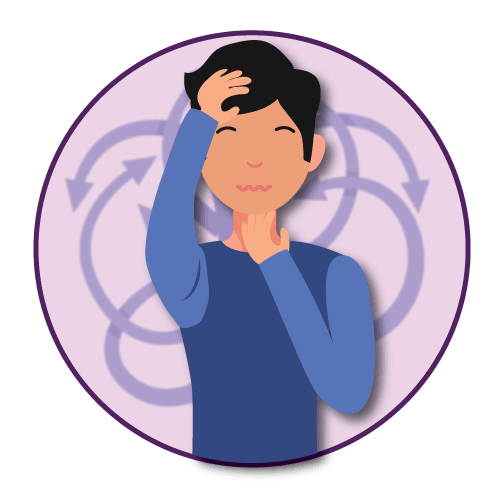Medicine details
| Image |  |
| Name | Cinemet CR |
| Dosage | Cr Tablet |
| Generic Name | Carbidopa + Levodopa |
| Classes |
Central Nervous System Agent Anti-Parkinson Agent Dopamine Agonist / Dopaminergic Agent |
| Diseases |
Neuromascular Disorder Parkinson's Disease |
| Company | ACI Limited |
Drug Package Details
| Strength | 50 mg + 200 mg |
| Storage Condition | |
| Origin Country | Bangladesh |
| Commercial Pack | 50 |
| Price per pack | ৳ 625.00 |
| Cost per pack | ৳ 550.00 |
| Package unit | 10 tabs strip |
| Price per unit | ৳ 12.50 |
| Cost per unit | ৳ 11.00 |
| Discount | 0 |
| Coupon | |
| Remarks |
Carbidopa + Levodopa
Carbidopa-Levodopa is a combination of carbidopa and levodopa. It is an anti Parkinson medication. Current evidence suggests that Parkinson's disease symptoms are linked to dopamine depletion in the corpus striatum. Dopamine administration appears to be ineffective in the treatment of Parkinson's disease because it does not cross the blood-brain barrier. However, dopamine's metabolic precursor, levodopa, crosses the blood-brain barrier and is presumably converted to dopamine in the brain. This is thought to be the mechanism by which levodopa alleviates Parkinson's disease symptoms.
Levodopa+Carbidopa's optimal daily dosage must be determined by careful titration in each patient. Levodopa+Carbidopa tablets are available in both a 1:4 carbidopa to levodopa ratio (Levodopa+Carbidopa 25-100) and a 1:10 ratio (Levodopa+Carbidopa 25-250 and Levodopa+Carbidopa 10-100). Tablets of the two ratios can be given separately or in combination to achieve the best dosage. Carbidopa has been shown in studies to saturate peripheral dopa decarboxylase at doses ranging from 70 to 100 mg per day. Patients who receive less carbidopa are more likely to experience nausea and vomiting.
- Initial dose: The recommended starting dose is one tablet of Levodopa+Carbidopa 25-100 three times per day. This regimen provides 75 mg of carbidopa per day. Dosage can be increased by one tablet every day or every other day as needed, up to a maximum of eight tablets of Levodopa+Carbidopa 25-100 per day.
When using Levodopa+Carbidopa 10-100, start with one tablet three or four times per day. However, for many patients, this will not provide an adequate amount of carbidopa. Increase the dosage by one tablet every day or every other day until individuals reach a total of eight tablets (2 tablets q.i.d.). - Maintenance: Therapy should be tailored to the patient's specific needs and adjusted as needed. Carbidopa in the range of 70 to 100 mg per day should be provided. When a higher proportion of carbidopa is required, one Levodopa+Carbidopa 25-100 tablet may be substituted for each Levodopa+Carbidopa 10-100 tablet. Levodopa+Carbidopa 25-250 should be used instead of Levodopa+Carbidopa 25-100 or Levodopa+Carbidopa 10-100 when more levodopa is required. Levodopa+Carbidopa 25-250 dosage may be increased by one-half or one tablet every day or every other day, up to a maximum of eight tablets per day, if necessary. There has been little experience with total daily doses of carbidopa greater than 200 mg.
Side effects associated with Levodopa+Carbidopa include-
- choreiform
- dystonic
- involuntary movements
- nausea
- chest pain
- hallucination
- paranoia
- asthenia
- hypotension
- phlebitis
- hypertension
- agranulocytosis
- When Carbidopa-Levodopa is given to patients who are taking levodopa, levodopa must be stopped at least twelve hours before starting Carbidopa-Levodopa. Individualization of therapy is required to reduce adverse reactions.
- Carbidopa-Levodopa, like levodopa, can cause mental disturbances. These reactions are thought to be caused by increased dopamine levels in the brain following levodopa administration.
- Patients with severe cardiovascular or pulmonary disease, bronchial asthma, renal, hepatic, or endocrine disease should use Carbidopa-Levodopa with caution.
- As with levodopa, care should be exercised in administering Carbidopa-Levodopa to patients with a history of myocardial infarction who have residual atrial, nodal, or ventricular arrhythmias. In such patients, cardiac function should be monitored with particular care during the period of initial dosage adjustment, in a facility with provisions for intensive cardiac care.
- Sporadic cases of a symptom complex resembling NMS have been reported in association with dose reductions or discontinuation of Carbidopa-Levodopa therapy. As a result, patients should be closely monitored when the dosage of Carbidopa-Levodopa is abruptly reduced or discontinued, especially if the patient is taking neuroleptics.
- As with levodopa, periodic evaluations of hepatic, hematopoietic, cardiovascular, and renal function are recommended during extended therapy.
Contraindication
- Carbidopa-Levodopa is contraindicated in patients with known hypersensitivity to any component of this drug.
- Concomitant administration with non selective monoamine oxidase (MAO) inhibitors are contraindicated.
-
- Phenelzine
- Isocarboxazid
- Tranylcypromine
None known.
Contraindicated in patients with suspicious, undiagnosed skin lesions or a history of melanoma.




 Bangla
Bangla English
English